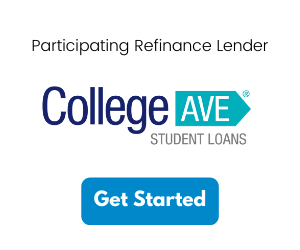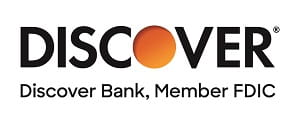The federal student loan program offers a variety of options. It can seem overwhelming, and tricky to navigate, but it doesn't have to be. Learn more about your options and compare the loans to find out which one is right for you.
-
Compare Lenders
featured articles
featured articles
-
Scholarships
featured articles
featured articles
featured articles
featured articles
-
Plan for College
featured articles
featured articles
featured articles
featured articles
featured articles
featured articles
-
Student Loans
featured articles
featured articles
featured articles
- Filing the FAFSA 2025-2026: A Simple Guide for Students
- FAFSA FAQ - Your FAFSA Questions Answered
- The complete guide to federal undergraduate student loans
- What are Federal Parent PLUS Loans and How to Apply?
- Financial Aid for Graduate School
- Compare Subsidized and Unsubsidized Student Loans
- View All Articles >
featured articles
featured articles
-
Credit Cards
featured articles
featured articles
featured articles
-
Money Management
featured articles
featured articles
featured articles
featured articles
featured articles
featured articles
featured articles
- Student LIFE Blog
Edvisors (“Edvisors Network, Inc.”) provides independent advertising-supported platforms for consumers to search compare and apply for private student loans. Loan offers from participating lenders that appear on our websites are not affiliated with any college and/or universities, and there are no colleges and/or universities which endorse Edvisors’ products or services. Lender search results do not constitute an official college preferred lender list. Edvisors receives compensation from lenders that appear on this site. This compensation may impact the placement of where lenders appear on this site, for example, the order in which the lenders appear when included in a list. Not all lenders participate in our sites and lenders that do participate may not offer loans to every school.
Edvisors is not a lender and makes no representations or warranties about your eligibility for a particular loan or financial aid. Lenders are solely responsible for any and all credit decisions, loan approval and rates, terms and other costs of the loan offered and may vary based upon the lender you select. Please check with your school or lender directly for information related to your personal eligibility.
Edvisors has endeavored to provide accurate information. However, the results provided by lenders are for illustrative purposes only and accuracy is not guaranteed, as such, Edvisors assumes no responsibility for errors or omission in the information provided.
Thank you for your interest in Edvisors' 2020-2021 Guide to Filing the FAFSA.
Please complete the form below to access your free copy.
Thank you! Click here to download your free FAFSA Guide.
Enter your email below to receive your Student Loan Handbook from Edvisors.
Please check your email for the Student Loan Handbook.
Federal Student Loan Articles
Student loan deferment is a temporary suspension of student loan payments, whereas forbearance is a plan that temporarily reduces or suspends student loan payments, but the borrower is still responsible for paying the interest on the loan while in forbearance.
Student loans in America can be traced back to the introduction of the GI Bill of 1944 and the Higher Education Act of 1965.
You may be wondering how long it takes to get a student loan? Generally speaking, you can expect your application to be processed in as little as a few days, to as many as a few weeks, but it could be months before the loan is disbursed.
Wondering how to get a student loan? The first step is to fill out the FAFSA.
One of the benefits of community college is its affordability. Here are 8 different ways you can pay for community college, 6 of which do not require student loans.
Interest rates on Direct Loans are fixed. Undergraduates receive lower interest rates than graduate students. Find current interest rates and fees for Direct Loans.
Here are four common methods for locating your student loans. You will need to know who your loan servicers are in order to refinance your student loans.
Student loan default can stay on your credit report for up to 7 years. Even if you are falling behind on your payments you can prevent student loan default. If you are in student loan default, there are ways to recover.
If you have taken out a student loan to help cover the costs of your education, you will want to understand the potential impact it can take on your taxes. When it comes to tax season, many students are concerned about how their student loans will affect their tax filing.
Get the details on the Direct Subsidized Loan program, including eligibility, interest rates and how to apply.
Direct Unsubsidized Loans are federal student loans available to undergraduate and graduate students. Learn more about eligibility, interest rates, and how to apply.
First, start by filing the FAFSA to apply for federal student loans. There are thousands of scholarships and grants available for graduate students as well.
Health professions student loans are need-based, government loans that come with service requirements and loan limits. There are four kinds of health professions loans.
Most student loans have limits that affect how much you can borrow. Learn about the limits for Direct, Perkins, PLUS, consolidation, and private loans.
There are two main types of student loans for college. Federal student loans offered by the federal government, and private student loans. Get straight answers on how they work and which one may be best for you.
Get your federal undergraduate student loan questions answered with our complete guide!
Copyright © 2025 by Edvisors.com. All rights reserved.











